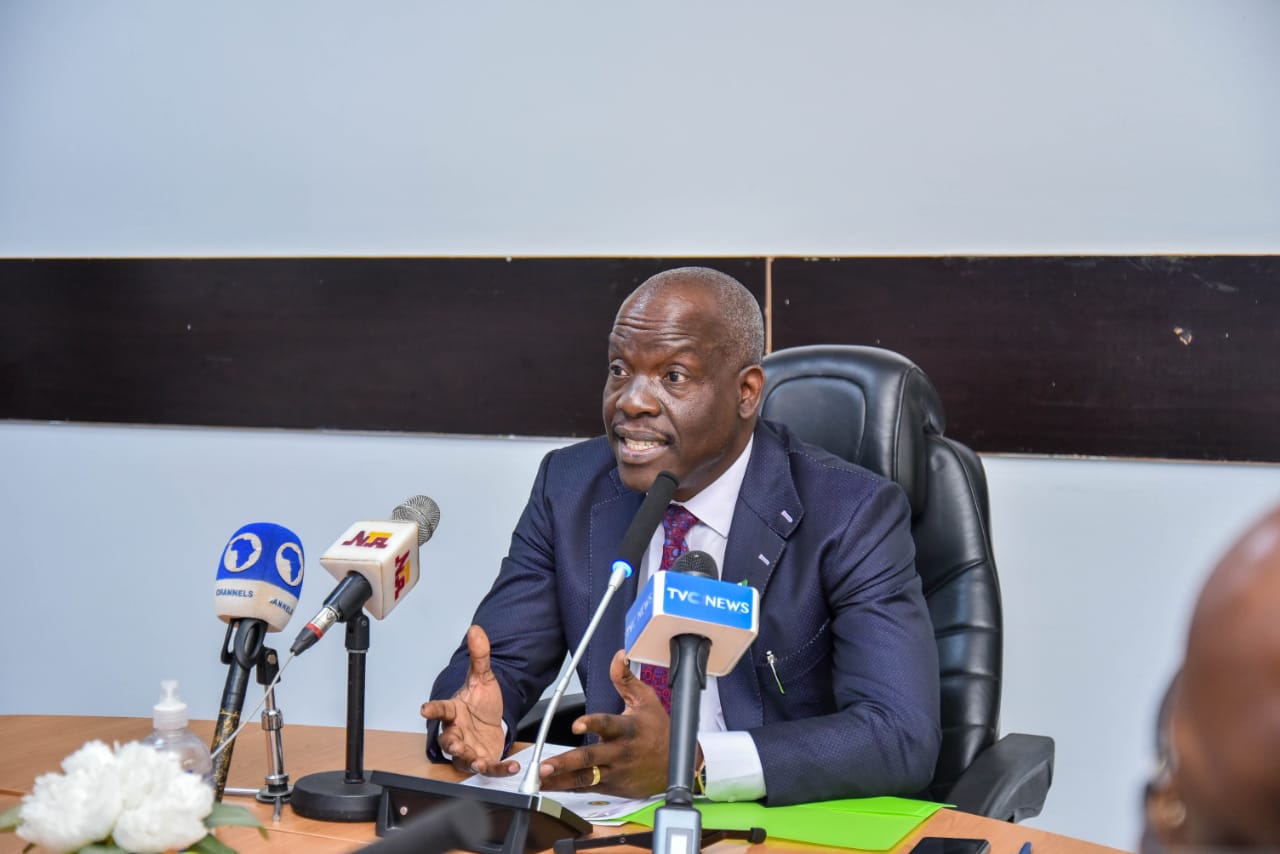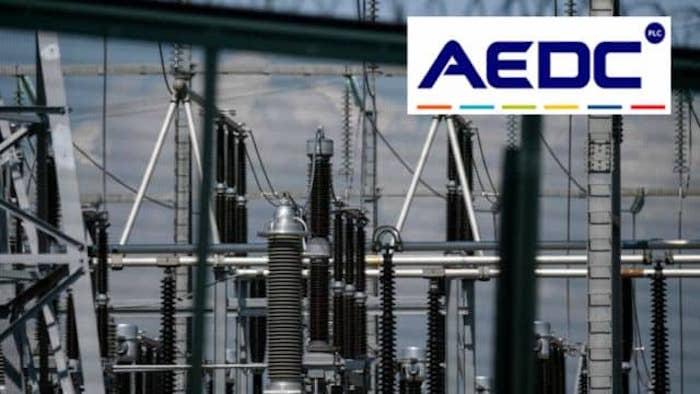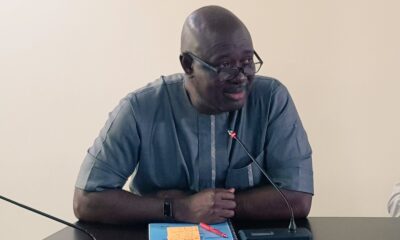Energy
Nigeria’s crude oil production for March edges up to 1.6 mbpd Q2, 2023 target — Survey
Nigeria’s crude oil production for March 2023, edged up to 1.6 million barrels per day(mbpd) which was the country’s target for the first quarter 2023, thereby contributing significantly to the 28.90 mbpd pumped by the Organization of the Petroleum Exporting Countries (OPEC).
It was revealed to our correspondent that supply to the market, based on shipping data provided by external sources, Refinitiv Eikon flows data, information from companies that track flows such as Petro-Logistics and Kpler, and information provided by sources at oil companies, OPEC, and consultants.
Nigeria’s Minister of Finance, Budget, and National Planning, Mrs Zainab Ahmed, had in December 2022, during the World Bank’s Nigeria Development Update and Country Economic Memorandum in Abuja, said the country set its sight on the country’s crude oil production to reach 1.6mbpd by the first quarter of 2023, due to efforts intensify to improve oil production infrastructure and reduce oil theft.
Nigeria’s output for January was 1.25mbp and 1.3mbp for February, even as the volume produced for March came close to 1.6mbp.
The survey established that the increased output level by the largest oil producer in Africa was recorded, despite a 70,000 bpd drop in OPEC oil output in March, which was attributed to oilfield maintenance in Angola and a halt in some of Iraq’s exports.
Further revelation showed that OPEC’s output was down more than 700,000 bpd from September, and 70,000 bpd from February 2023 output level.
The largest drop of 100,000 bpd was in Angola due to a small export programme and field maintenance on the Dalia stream. Exports hit a multi-month low on some estimates.
The second-biggest drop came from Iraq, where companies have reduced output in the northern Kurdistan region following a halt to the export pipeline on Saturday. Higher exports from southern Iraq limited the decline, the survey found
According to the report, OPEC’s output is significantly undershooting the targeted amount by 930,000 bpd because many producers – notably Nigeria and Angola – lack the capacity to pump at the agreed levels.
OPEC’s Gulf producers Saudi Arabia, Kuwait and the United Arab Emirates maintained high compliance with their targets under the OPEC+ agreement, the survey found.
The OPEC and its allies, known as OPEC+, agreed to cut production in late 2022 to support the market as the economic outlook worsened and prices weakened. A meeting of top OPEC+ Ministers on Monday is expected to confirm the existing policy.
OPEC+ lowered its output target by 2 million bpd, of which about 1.27 million bpd was to come from the 10 participating OPEC countries. The target remains in place for March.
With the declines in Angola and Iraq this month, compliance with the agreement increased to 173 per cent of pledged cuts, according to the survey, against 169 per cent in February.
Energy
Divestments: Shell assets estimated at 4.96 billion barrels oil reserve – NUPRC


The Nigerian Upstream Petroleum Regulatory Commission (NUPRC) says the Shell Petroleum Development Company of Nigeria Limited (SPDC) assets being considered for divestments have an estimated reserve of 4.96 billion barrels of oil.
The Commission Chief Executive of NUPRC, Mr Gbenga Komolafe disclosed this on Monday in Abuja at the NUPRC-SPDC due diligence divestment workshop.
Komolafe said at the workshop that the assets have reserves of 1.77 billion barrels of condensate, 28.16 trillion cubic feet of associated gas and 28.11 trillion cubic feet of non-associated gas.
The workshop was aimed at discussing the proposed divestment of the participating interests held by SPDC in the SPDC JV Assets, through a sale by the shareholders of all the issued shares of SPDC to Renaissance Africa Energy Company Limited.
The SPDC JV assets are currently operated by the SPDC on behalf of its Joint Venture (JV) partners namely Nigeria National Petroleum Company Limited (NNPC Ltd.), Total Upstream Nigeria Limited, Nigeria Agip Oil Company and SPDC.
“To date, the assets have achieved a cumulative production of 5.35 billion barrels of crude oil, 165. 57 million barrels of condensate, 9.51 trillion cubic feet of associated gas and 3.75 trillion cubic feet of non-associated gas.
“These contribute to the achievement of Nigeria’s crude and condensate output.
“The assets being considered have an estimated total reserve of 4.96 billion barrels of oil, 1.77 billion barrels of condensate, 28.16 trillion cubic feet of associated gas and 28.11 trillion cubic feet of non-associated gas.
“This makes a significant contribution to the nation’s hydrocarbon resources.
“Additionally, these assets hold P3 reserves estimated at 2.85 billion barrels of oil, 850.85 million barrels of condensate, 11.3 trillion cubic feet of associated gas and 12.26 trillion cubic feet of Non-Associated Gas,” he said.
Komolafe said the due diligence meeting would enable the commission to identify a successor who would not only possess the requisite financial resources but also demonstrate the technical expertise to responsibly manage these assets throughout their lifecycle.
He further said that the commission would ensure that the inherent environmental and end-of-life liabilities such as decommissioning liabilities were accurately identified and assigned to the party best equipped to bear the associated risks.
This, he said would necessitate a comprehensive understanding of regulatory requirements, industry best practices and the unique challenges inherent in oil and gas operations.
“To this end, we have implemented robust measures to streamline regulatory procedures and eliminate unnecessary barriers to investment.
“Let me emphasise that the NUPRC wholeheartedly welcomes investment in the Nigerian upstream petroleum sector.
“We recognise the critical role investment plays in driving innovation, creating employment opportunities and ultimately fueling economic prosperity for our nation and its people.
“Therefore, we are always eager to welcome local and international investors who choose to invest in the Nigerian upstream petroleum sector,” he said.
He added that the commission was fully committed to facilitating and supporting investment initiatives that align with national development goals.
Komolafe urged SPDC and Renaissance to engage proactively, adhere to regulatory requirements and work collaboratively with the NUPRC to ensure the successful conclusion of the Shell Divestment.
“As regulators, we will ensure that this evaluation is conducted with precision and impartiality, with a focus on transparency and accountability,” he said.
He lauded President Bola Tinubu for his support and commitment towards ensuring a purposeful leadership that would attract investment and development of the country’s oil and gas sector.
The News Agency of Nigeria (NAN) reports that the NUPRC has developed a Divestment Framework consisting of seven cardinal pillars to guide the assessment of applications for Ministerial consent to the SPDC divestments and other similar divestments
Energy
NUPRC develops framework to guide Shell divestment, others


The Nigeria Upstream Petroleum Regulatory Commission (NUPRC) has developed a divestment framework to guide the assessment of applications for ministerial consent to the Shell Petroleum Development Company of Nigeria Ltd. (SPDC) divestment.
The NUPRC said the framework with seven cardinal pillars would also guide other similar divestments in the country.
The commission’s Chief Executive, NUPRC, Mr Gbenga Komolafe, said this at the NUPRC-Shell Petroleum Development Company of Nigeria Ltd. divestment workshop on Monday in Abuja.
The due diligence workshop aimed at discussing the proposed divestment of the participating interests in the SPDC JV Assets, through a sale by its shareholders of all the issued shares of the SPDC to Renaissance Africa Energy Company Ltd.
The SPDC JV assets are currently operated by the SPDC on behalf of its Joint Venture (JV) partners, namely, Nigerian National Petroleum Company Limited (NNPC Ltd.), Total Upstream Nigeria Limited, Nigeria Agip Oil Company and SPDC.
SPDC JV OMLs were originally awarded as Oil Exploration Licence -1(OEL-1) on Jan. 1, 1949, covering the whole of southern Nigeria and Cameroon.
Ultimately, the assets were converted to OMLs in April 1962 and subsequently renewed in 2014 and 2018 for 20 years.
Komolafe listed the cardinal pillars to include technical capacity, financial, legal, decommissioning and abandonment (D&A), host community trust /environmental remediation fund, industrial relations and labour issues and data repatriation.
On technical capacity, he said the successor entity must demonstrate verifiable capacity to operate the asset vigorously, while the NUPRC shall assess the prospective successor’s financial viability to undertake a defined programme and fulfil required obligations on the assets.
On the legal framework, he said the acquiring entity must be ‘fit and proper’ persons in the eyes of the law.
He added that clear evidence of resolutions of legacy debts and legal encumbrances must be established.
“Applicable decommissioning and abandonment costs must be diligently assessed and ensure settlement of outstanding obligations. Commission will ensure that potential exposure of the Nigerian government to decommissioning liabilities is averted.
“The commission shall assess the status of Host Community Trust Fund obligations and ensure the robustness of the successor entity’s adherence to decarbonisation plans and sound Environmental Social & Governance principles.
“The commission shall implement a robust assessment mechanism to avert undesirable labour union issues and disharmony arising from the divestment process.
“Concerned parties shall endorse a “Certificate of Settlement” to validate alignments reached on all labour issues (staff welfare, benefits, entitlements as well as disengagement, redundancies and retirement, among others).
“The aim is to ensure the nation averts socioeconomic disruptions arising from failure to resolve labour issues that might result because of post-divestment,” he said.
On data repatriation, the CCE emphasised that the commission would ensure that all data mined during the operating life of the asset were repatriated to the National Data Repository in line with extant regulations.
Komolafe, however, emphasised that the NUPRC would remain committed to free entry, free exit business principle aimed at encouraging investors in the sector.
Mr Wessel de Haas, General Manager, SPDC Assets and Deputy Managing Director, reiterated the significant contribution the company had made and expected to make in the future, toward Nigeria’s economic growth.
He anticipated a favourable outcome from the workshop with expectation of a due diligence process to finalise the divestment.
Energy
Power outage in FCT due to technical fault on some feeders – AEDC


The Abuja Electricity Distribution Company (AEDC), has attributed the power outage currently being experienced in parts of Abuja to technical fault on some of its feeders
The company’s management in a statement on Monday in Abuja listed the feeders affected as L36, H23, H33 and 8.
“This is to inform residents in parts of Abuja that the power outage currently being experienced is due to technical fault on feeders L36, H23, H33 and 8 respectively.
“Locations affected: are feeder L36-Entire Idu industrial, CITEC Estate, Efab Global, Babaginda Estate, Nizamaye Hospital and its environs.
“FH 23-Airport, River Park, Shoprite, NIPCO, Dunamis Church, NIGCOMSAT and its environs,’’ it said.
The company said that Feeder FH33 was also affected and this comprises Apo Mechanic Village, Waru Village and its environs
The company also said that Feeder 8 which has Jabi, Parts of Utako, Life Camp, Kado, Efab, Zango Daura, and Mbora Estates and its environs was also affected.
According to AEDC, its technical team is working tirelessly to rectify the fault and restore power supply as quickly as possible and regrets any inconvenience caused.
-
capital market2 years ago
Rt.briscoe, FBNH, Others halts negative performance of stock market
-
Finance3 months ago
Court orders Sen. Victor Umeh to repay N136m bank debt to AMCON
-



 Abuja Update2 months ago
Abuja Update2 months agoUNDP, FG partnership needed to achieve inclusion, equity- Minister
-
Abuja Update1 month ago
Banks drive stock market performance with N147bn gain
-



 Health3 weeks ago
Health3 weeks agoCapacity training will reduce migration of health workers- NPHCDA
-



 Business2 weeks ago
Business2 weeks agoTingo Group unveils Tingo Electric, Tingo Cola drink at Lagos launch
-



 Infotech1 month ago
Infotech1 month agoWorld Backup Day: NITDA urges Nigerians to ensure backup of data
-
News4 months ago
Oil thieves sponsoring malicious media campaign against Navy – Spokesman
















